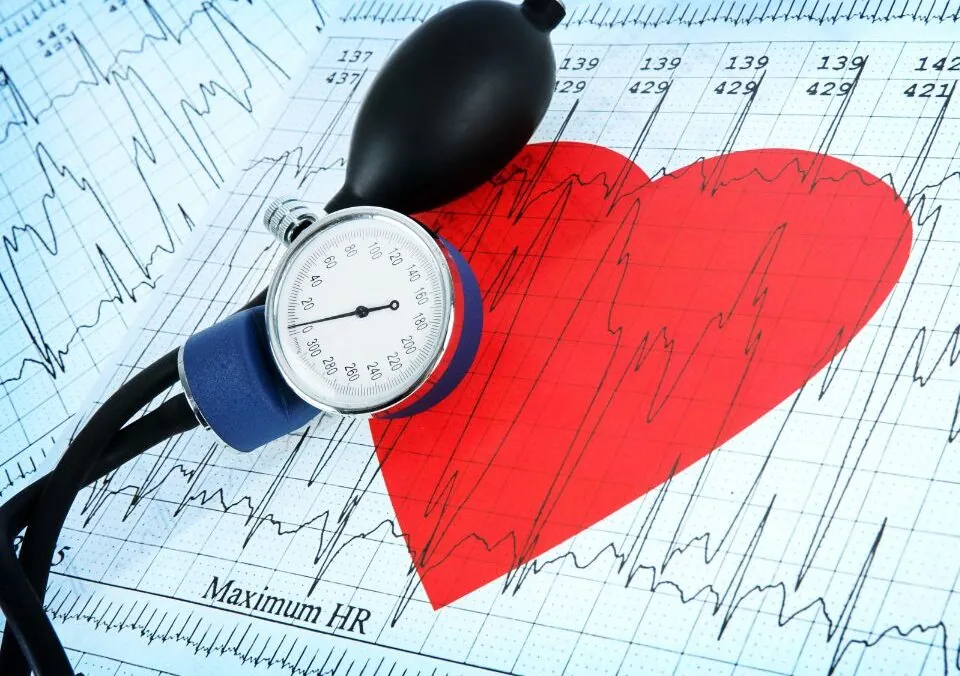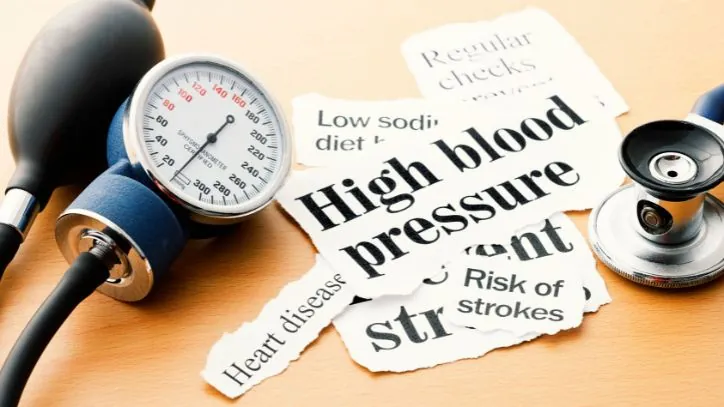Blog
Reduce Hypertension Through Diet

Hypertension, commonly known as high blood pressure, is a significant health issue affecting nearly half of the adult population in the United States, according to the CDC. If left unmanaged, hypertension can lead to severe health complications such as heart disease, stroke, kidney failure, and even cognitive impairments. While medication is often prescribed to manage this condition, dietary changes can provide a powerful, natural way to combat hypertension. In this article, we will explore how specific foods can help lower blood pressure, the importance of a balanced diet, and lifestyle changes that can also make a significant impact.
Understanding Hypertension
Before diving into the dietary solutions, it’s essential to understand what hypertension is and the risk factors associated with it. Blood pressure measures the force of blood against the walls of your arteries. It’s expressed in two numbers: systolic pressure (the pressure when your heart beats) over diastolic pressure (the pressure when your heart rests between beats). A typical reading should be around 120/80 mmHg. Hypertension is diagnosed when readings consistently exceed 130/80 mmHg.
Risk Factors
Several risk factors can contribute to hypertension, including:
- Age: Blood pressure tends to rise with age.
- Family History: Genetic predisposition can play a role in your likelihood of developing hypertension.
- Obesity: Excess weight can increase blood pressure by making the heart work harder.
- Lack of Physical Activity: Inactivity is linked to higher heart rates and can lead to obesity.
- Poor Diet: Diets high in sodium, saturated fats, and sugars can raise blood pressure.
- Tobacco Use and Alcohol Consumption: Both substances can contribute to increased blood pressure.
The Importance of Diet in Managing Hypertension
What you eat plays a significant role in managing your blood pressure. According to registered dietitian Kristin Kirkpatrick, specific foods can naturally lower blood pressure due to their rich nutrient content. Here, we will discuss several heart-healthy foods and their benefits in detail.

Foods That Help Lower Blood Pressure
Incorporating certain foods into your diet can help in managing hypertension effectively. Here are some of the top foods that have been shown to support lower blood pressure levels:
1. Avocados
Avocados are nutrient-dense and packed with monounsaturated fats, which can help reduce bad cholesterol levels. They are also high in potassium, a mineral that aids in regulating blood pressure by balancing out sodium levels in the body. A study published in the journal Nutrition found that increasing potassium intake can significantly lower blood pressure among those with hypertension.
2. Beets
Beets contain nitrates, which are converted into nitric oxide in the body. This compound helps relax blood vessels, promoting better blood flow and lowering blood pressure. Research published in the American Journal of Clinical Nutrition emphasizes that beetroot juice consumption can lead to significant reductions in blood pressure.
3. Lemons
Lemons are rich in vitamin C and antioxidants, which can help lower blood pressure and improve heart health. The citric acid in lemons may also aid in relaxing blood vessels. A study in the Journal of Clinical Nutrition suggests that regular lemon consumption can positively impact hypertension management.
4. Dark Chocolate
Surprisingly, dark chocolate can be beneficial for blood pressure due to its high flavonoid content, which helps improve circulation and reduce inflammation. Consuming dark chocolate can lead to a reduction in systolic and diastolic blood pressure.
5. Coffee
While coffee has had a mixed reputation regarding heart health, moderate consumption may offer protective effects against hypertension. The caffeine in coffee has been shown to improve vascular function. A study found that coffee drinkers had a lower incidence of high blood pressure compared to non-drinkers.
6. Almonds
Almonds are beneficial for heart health as they contain healthy fats, protein, fiber, and essential nutrients like magnesium. Regular almond consumption may significantly improve blood pressure. This study suggests that the daily intake of almonds can positively affect individuals with hypertension.
7. Celery
Celery is high in phthalides, a compound that may help relax the tissues of the artery walls, thereby improving blood flow and reducing blood pressure. A diet rich in celery can be a natural way to lower hypertension levels.
8. Spinach
Spinach is loaded with potassium and nitrates, both of which can help lower blood pressure. One published study found that spinach consumption was correlated with a reduction in heart disease risk due to its positive effects on blood pressure.
9. Apples
The fiber, vitamin C, and various antioxidants found in apples contribute to their health benefits. Studies have shown that the regular consumption of apples can help reduce hypertension risk. A notable study found a significant connection between apple consumption and blood pressure reduction.
10. Salmon
Fatty fish like salmon are rich in omega-3 fatty acids, which can help lower blood pressure by reducing inflammation and promoting heart health. Research published in the Journal of Hypertension indicates that omega-3 fatty acids from fish may achieve modest reductions in blood pressure.
11. Extra Virgin Olive Oil
Extra virgin olive oil is a key component of the Mediterranean diet and is rich in polyphenols that are linked to better heart health. Numerous studies illustrate that incorporating extra virgin olive oil into the diet can help lower blood pressure. The American Heart Association emphasizes the cardiovascular benefits of olive oil.
12. Yogurt
Low-fat yogurt is another excellent food choice for those looking to lower their blood pressure. It’s rich in protein, calcium, and probiotics. A study in the journal Hypertension found that dairy consumption, especially yogurt, is associated with reduced hypertension risk.
13. Pumpkin Seeds
Pumpkin seeds are high in magnesium, which is known to help regulate blood pressure. They also contain various antioxidants and healthy fats. Research indicates that magnesium supplementation can lead to a significant drop in blood pressure for those with hypertension.
14. Cinnamon
Cinnamon is not only a flavorful spice but also a powerful antioxidant that can help lower blood pressure. Studies suggests that regular consumption of cinnamon can result in significant reductions in both systolic and diastolic blood pressure.
15. Oregano
Oregano has beneficial properties, and its use in traditional medicine has been recognized for its potential health benefits. This herb is high in phenolic compounds, which can help reduce blood pressure.
16. Garlic
Garlic is well-known for its many health benefits, particularly its ability to lower blood pressure. Allicin, a compound found in garlic, has been extensively studied and is linked to hypertension management. According to a report, garlic supplementation can lead to modest reductions in blood pressure.
17. Blueberries
Blueberries are packed with antioxidants and flavonoids known as anthocyanins, which can support heart health. Research indicates that blueberry consumption might help lower blood pressure, particularly in older adults.
Foods to Avoid
While incorporating beneficial foods into your diet, it’s also essential to be aware of those that can exacerbate hypertension. Here are some foods to limit or avoid:
- High-Sodium Foods: Processed foods, canned soups, and fast food are often high in sodium, which can lead to increased blood pressure. According to the American Heart Association, the recommended sodium intake is less than 2,300 mg per day.
- High-Fat Foods: Saturated and trans fats can lead to weight gain and higher cholesterol levels, further exacerbating hypertension.
- Sugary Foods and Drinks: Foods high in added sugars can contribute to weight gain and obesity, which are significant risk factors for hypertension.
Lifestyle Factors to Consider
In addition to diet, several lifestyle factors can help manage blood pressure effectively. Consider these tips:
1. Stress Management
Chronic stress can contribute to hypertension. Practicing mindfulness, meditation, or yoga can help reduce stress levels. Engaging in hobbies that you enjoy can also serve as effective stress relievers.
2. Maintain a Healthy Weight
Achieving and maintaining a healthy weight can positively affect your blood pressure. A weight loss of even a few pounds can help lower blood pressure, especially if you are overweight or obese.
3. Regular Physical Activity
Getting at least 150 minutes of moderate aerobic activity or 75 minutes of vigorous activity each week can help lower blood pressure. Activities like walking, cycling, swimming, or dancing can be beneficial.
4. Quality Sleep
Getting adequate sleep is crucial for heart health. Aim for 7-9 hours of quality sleep each night. Poor sleep can lead to increased blood pressure and other health issues.
5. Limit Alcohol and Quit Smoking
If you consume alcohol, do so in moderation. Heavy drinking can elevate blood pressure levels. Additionally, quitting smoking can improve overall heart health.
Conclusion
Managing hypertension through diet and lifestyle changes can have significant benefits for your overall health. By incorporating foods that help lower blood pressure and avoiding those that can elevate it, you can effectively work towards better heart health. Furthermore, addressing lifestyle factors such as stress, weight, activity level, and sleep can further enhance your efforts.
For more health-related articles and tips on managing hypertension and improving overall well-being, be sure to check out the Fill Your Plate blog! By taking these steps toward a healthier lifestyle, you are investing in your long-term health and well-being.
By Heide Kennedy, Arizona Farm Bureau Communications Intern


















